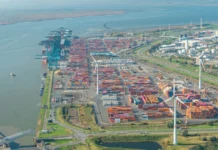
The Board of Directors of the Port Authority of Valencia has voted to enroll the ports of Valencia, Sagunto and Gandia in “Upcycling the Oceans,” an international initiative led by the Ecoalf Foundation and Ecoembes that recovers rubbish from the sea and feeds it back into the recycling chain with help from the fishing community.
Although the agreement involves no direct financial outlay for Valenciaport, it commits the authority to guaranteeing traceability and responsible management of all waste brought ashore, while mobilising the broader port community through awareness-raising campaigns.
The initial term is four years, renewable annually for up to eight.
By signing on, the three Valencian ports join a network of 72 Mediterranean harbours working to meet UN Sustainable Development Goal 14 on protecting life below water.
The project will also bolster scientific knowledge of marine debris, with particular attention to microplastics that threaten ecosystems and human health by carrying harmful chemicals into the food chain.
Valenciaport’s participation builds on a string of environmental programmes it has championed in recent years. Among them are the EU-funded LIFE IP INTEMARES clean-up of nearby seabeds; the MARPOL Gandia pilot for collecting end-of-life fishing nets; and the Oceanets project, which transforms discarded nets into new textile products.
The authority has run travelling exhibitions and workshops to highlight the impact of marine litter.
Beyond the environmental decision, the APV board also approved several commercial measures at its meeting in the Port of Valencia’s historic Clock Building.
Gandia Servicios Portuarios S.L. and Bergé Marítima Sagunto S.L.U. each received the green light to offer ship-consignment services across the three ports, while Tracción Rail S.A. was authorised to handle rail shunting operations.
In the sphere of emergency preparedness, the board renewed and expanded its collaboration agreement with Valencia’s municipal fire brigade for another four years. The port will fund specialised training courses and provide equipment, raising its annual contribution to as much as €165,000 to address the growing complexity of port-side emergencies.





